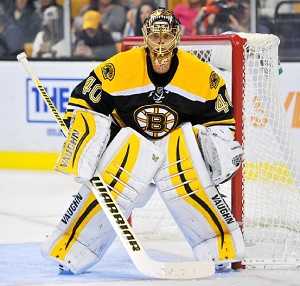HOCKEY POSITIONS UK: There are two basic responsibilities for the players.
As you might expect, the main job of players playing in the offense role is to score lots of goals.
Whereas, defense players have the positional role of protecting their own goal area. They defend their goal area against the opponent’s attacking players.
Team Roles and Responsibilities
A full team has 6 playing positions in ice hockey. They consist of three main attacker roles and three defensive players. Left and right wing offense are the principle goal scorers. The center player performs a vital role in the face-offs.
As a rule, three players occupy the defensive positions at the back. They play left and right wing defense with one goal keeper (often called the goalie).
Center Player
If it was American Football rules you might call the ‘center player’ a quarterback of the club. He is always busy at both ends of the playing surface. Centers should be adept during the face-offs and good at passing. It is helpful for the team if he can shoot goals too.
Defensemen
A full strength ice hockey team has two defensemen. One plays on the left side of the rink and the other on the right side. The modern game boasts three primary kinds of defense philosophy:
- Creative Offensive-minded: They like to handle the puck a lot. They lead the team forward up the ice rink in attack. But, they are not always known for their physical prowess.
- Defensive-minded: These players are ‘stay-at-home’ bruiser types of hockey positions. They play a physical game and rarely venture out of their zone with the puck.
- Special Players: You might call these ice hockey positions ‘rare athletes’. They combine all attributes of player roles (a dream scenario for ice hockey coaches).
Ice Hockey Positions: Goaltender

It is fair to say that the goalie has the toughest position in ice hockey – like most team sports. The job of a goaltender is stopping opponents from scoring.
Keeping the puck out of the net is the main role of a hockey goaltender.
A good ice hockey goalie also builds confidence for the rest of the team. That often helps the entire squad win championships.
Right Wing Position
The right wing player works the right side of the ice in general. Ideally, he will be a physical player who is fast and strong along the boards and in the corner.
Right wingers are responsible for defending the opposition’s left defenseman in their own defensive zone.
Left Wing Position
A left wing player is traditionally a left-handed shooter. Even so, the modern game sees a lot more right-handers playing this position now. This is especially so in the National Hockey League.
The Europeans started the new trend in ice hockey positions. They claimed that a right-handed player has a better angle to shoot from when he attacks from his left wing.
It seems left wing players are often battling in front of the net and called on to dig out the puck from the corners.
10 Ice Hockey Positioning Tips
Understanding the official ice hockey rules is the first step to becoming a great player. All the top ice hockey stars are well prepared before they hit the ice.
But, you can also familiarize yourself with this list of ten ice hockey tips and tactics. It is certain to help all beginners understand how to play a safe game.
Note: The 10 ice hockey positioning tips highlight professional behaviour and ethical sportsmanship.
- Learn how to skate properly and proficiently (even goaltenders). Playing any of the positions in ice hockey is almost impossible unless you can skate well.
- Use ice hockey equipment that fits you appropriately. That includes your stick, skates, and sweater (hockey jersey).
- Always be alert on the bench observing the opposing team. Be prepared to adjust your play tactics accordingly (offensively and defensively).
- Avoid being a ‘puck hog‘ and pass it to your teammates if they are in better playing positions.
- Be alert for player fatigue and do not overstay your shift for too long. Come off when it is your turn for a rest break, but stay ready to go back onto the ice.
- Always wear a protective helmet and be careful with your hockey stick. Injuries are common in ice hockey, especially if you check players from behind.
- Keep your head up when if you are smashing into the boards to reduce the risk of serious head injury.
- Avoid yapping at your teammates and especially the referee.
- Ice hockey is an intense and emotional sport. It is fine to be passionate about the game, but go easy on the match officials and your opposing players.
- Play competitive ice hockey only when you are in good physical shape. Practice your goal shooting and your passing skills as often as possible.

